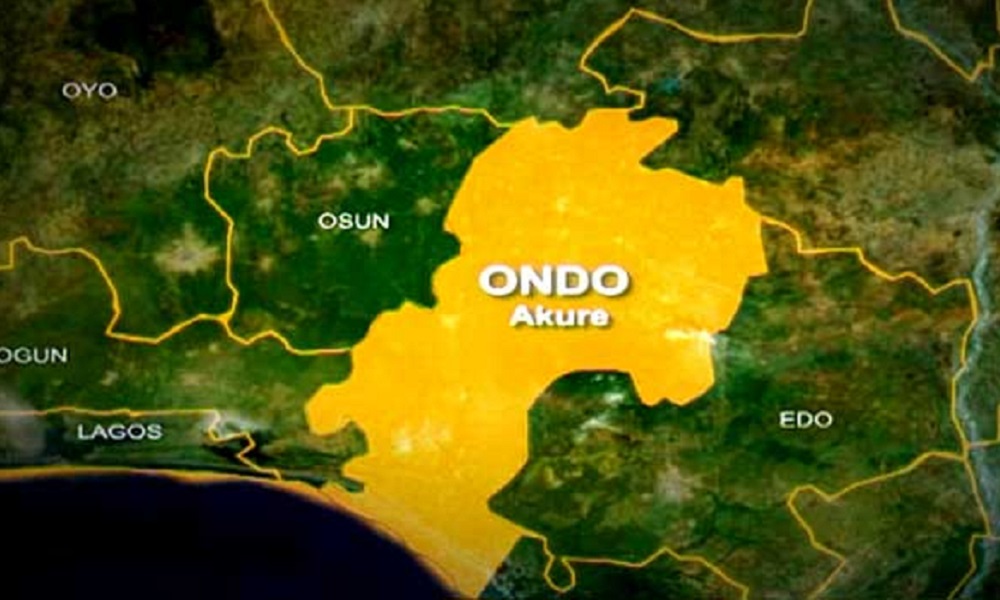News
Bolt blocks over 11,000 drivers over safety issues

By Kayode Sanni-Arewa
Bolt, a ride-hailing company has suspended more than 11,000 drivers in Nigeria and South Africa in less than a year for violating its code of conduct.
The move comes after the company faced criticism for its lack of driver and passenger safety in the region.
About 6,000 drivers were suspended in South Africa and 5,000 in Nigeria. The company has been accused of holding its drivers to lax standards in Africa, and these recent suspensions suggest a shift towards stricter enforcement
This crackdown follows a series of disturbing incidents involving Bolt drivers in South Africa. In May 2024, a driver was arrested for allegedly stabbing two women after a disagreement over their drop-off location.
This case, along with the conviction of another former Bolt driver for kidnapping, rape, and assault, sparked outrage on social media and threats of legal action against the company.
“The company will continue to permanently suspend drivers and riders who have been reported for misconduct from accessing the platform,” Bolt said in a statement. “Whether these measures will be enough to rebuild trust with riders remains to be seen.”
News
FG partners Mayo Clinic to establish two liver transplant centres

The federal government has announced plans to establish liver transplant centres in two Federal Tertiary Health Institutions, in partnership with the globally renowned Mayo Clinic.
The Minister of State for Health and Social Welfare, Dr. Iziaq Salako, revealed the development via his official X handle following a strategic visit to the Mayo Clinic Comprehensive Cancer Centre in Rochester, Minnesota, United States.
According to Salako, the initiative is part of a broader collaboration with the Mayo Clinic to enhance Nigeria’s capacity for advanced medical care, including liver transplants, cancer research, and precision medicine.
The partnership, he said, would not only boost Nigeria’s transplant infrastructure but also position the country as a regional leader in high-end medical services.
“We are working towards strengthening our partnership on collaborative research, policy development, public health initiatives, capacity building, cancer infrastructure development, clinical trial opportunities and so on. Nigeria is working towards establishing Liver Transplant Centres in at least two of our Federal Tertiary Health Institutions in partnership with the Mayo Clinic,” he said.
During the visit, Salako led a Nigerian delegation to meet with Professor Folakemi Odedina, a Nigerian-American from Ogun State and the Enterprise Deputy Director for Community Outreach and Engagement at the Mayo Clinic Cancer Centre.
The delegation also held a virtual meeting with the Executive Director of the Centre, Cheryl Willman who was unable to attend in person due to a personal bereavement.
“It was an opportunity to explore areas of partnership and collaboration between the Mayo Clinic Cancer Programme and the Federal Ministry of Health and Social Welfare through the National Institute for Cancer Research and Treatment to advance shared goals in cancer research, precision medicine, and health equity for Nigerians and the global Black community. It was also an opportunity for a guided tour of the Mayo Clinic in Rochester,” Salako said.
He emphasised that the discussions focused on strengthening ties in collaborative research, policy development, public health initiatives, capacity building, cancer infrastructure development, and clinical trial opportunities, all aimed at improving health equity for Nigerians and the global Black community.
News
Tragedy as grader crushes mother, child to death in Ondo

A middle-aged woman and her child lost their lives on Monday along Olujewu/Igbatoro Road in Ose Local Government Area of the state when a grader crushed them to death.
The incident occurred when a grader owned by the local government, deployed for the rehabilitation of roads in the area, lost control and rammed into the woman and child, killing them on the spot.
It was gathered that the mother and her child were on their way to the farm and met their untimely death when the grader operator lost control of the vehicle due to brake failure.
Speaking on the tragic incident, the Chairman of the council, Kolapo Ojo, who confirmed the development, expressed deep sorrow over the unfortunate event and extended condolences to the grieving family.
In a statement issued by Ojo after visiting the family house of the deceased, he described the incident as unfortunate, lamenting the death of the mother and child.
He said, “The tragic accident, which occurred as a result of brake failure in a grader owned by the local government and deployed for road rehabilitation under our rural development programme, has brought great pain to all of us.
“What was intended as a noble effort to improve access and infrastructure within the community has now become a moment of intense grief. This is a loss that touches us all—not just as a government, but as members of one human family.
A hardworking mother and her innocent child set out to the farm like on any other day, only to have their lives cut short in the most heartbreaking way.”
He added, “No words can adequately express the sadness and regret we feel as a government and as a people.
News
“I am pleased with Tinubu’s leadership, I married second wife” — Katsina resident

A resident of Katsina State has credited President Bola Tinubu’s administration with improving security and the economy, saying one of his most significant personal achievements under the current government was marrying a second wife.
The man, who hails from Jibia Local Government Area, made the remarks during a press interview conducted in the Hausa language.
He praised the reduction in banditry in his community and claimed that the improved environment allowed him to take the bold step of expanding his family.
“I am pleased with the leadership of Tinubu. I married a second wife under Tinubu. My community, Jibia, is now secure from attacks by bandits,” he said.
His comments come amid ongoing discussions about the impact of the Tinubu administration’s security and economic policies, especially in northern Nigeria. While some citizens have continued to express frustration over economic hardship, others, like the Katsina resident, believe there have been noticeable improvements in specific areas such as local security.
Jibia, a border town in Katsina, has been one of the regions affected by banditry in recent years, leading to displacement, loss of lives, and disruption of local economies. However, local reports suggest that security operations have recently intensified in the area, resulting in fewer incidents.
Watch the video below:
https://www.instagram.com/reel/DJRU3Uttzes/?utm_source=ig_embed&utm_campaign=loading
-

 News13 hours ago
News13 hours agoWhy ‘VeryDarkMan was arrested – EFCC
-

 Economy24 hours ago
Economy24 hours ago75.5% of rural Nigerians now live below poverty line — World Bank
-

 Entertainment13 hours ago
Entertainment13 hours agoHow I narrowly escaped death in U.S hotel room – Seun Kuti
-

 Education16 hours ago
Education16 hours agoOver 1.5m candidates score less than 200 in 2025 – UTME
-

 News15 hours ago
News15 hours ago‘S3x is good, I enjoy it,’ Bishop Adejumo tells wives
-

 News23 hours ago
News23 hours ago‘Cabals’ still fighting against our refinery — Dangote
-

 News16 hours ago
News16 hours agoTinubu to meet Gencos over N4tn electricity debt
-

 News10 hours ago
News10 hours agoReps Minority Caucus condemns unlawful detention of VDM, demands his immediate release






